Life
Sign up for our newsletter
We summarize the week's scientific breakthroughs every Thursday.
-
 Humans
HumansLawrence David’s gut check gets personal
Computational biologist Lawrence David regularly opens himself to new scientific challenges, including tracking his own microbiome.
-
 Neuroscience
NeuroscienceJeremy Freeman seeks to simplify complex brain science
As a group leader at the Janelia Research Campus, Jeremy Freeman is equal parts neuroscientist, computer coder and data visualization whiz.
-
 Oceans
OceansMelissa Omand’s clever tech follows the fate of ocean carbon
Drawn to the water early, oceanographer Melissa Omand now leads research cruises studying how carbon and nutrients move through the seas.
-
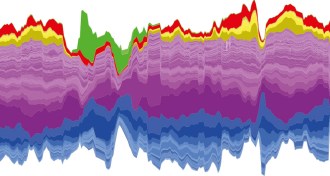 Life
LifeHow one scientist’s gut microbes changed over a year
Computational biologist Lawrence David chronicled changes in his gut microbes for a year.
-
 Cosmology
CosmologyA cosmic quandary, risks of hatching early and more reader feedback
The cosmos, tadpole escape artists, vehicle collisions and more in reader feedback.
-
 Ecosystems
EcosystemsShrinking sea ice threatens natural highways for caribou, plants
As Arctic sea ice declines, Peary caribou or plants risk getting stranded when their frozen highways thaw.
By Susan Milius -
 Plants
Plants‘The Long, Long Life of Trees’ takes readers on a walk in the woods
The Long, Long Life of Trees explores the scientific, historical and cultural significance of apple, birch, elm and 14 other kinds of trees.
By Sid Perkins -
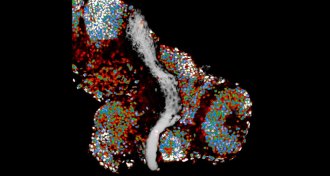 Neuroscience
NeuroscienceBrain’s physical structure may help guide its wiring
The brain’s stiffness helps dictate how nerve cells grow, a study suggests.
-
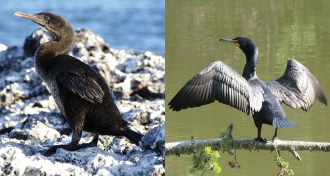 Genetics
GeneticsTo study Galápagos cormorants, a geneticist gets creative
To collect DNA from four cormorant species, this scientist called in bird scientists far and wide.
-
 Oceans
OceansFirst U.S. ocean monument named in the Atlantic
A region of ocean off the coast of Cape Cod has become the first U.S. marine national monument in the Atlantic Ocean, President Barack Obama announced.
-
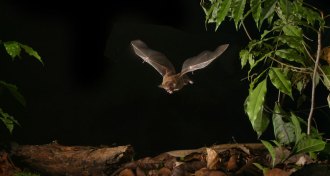 Animals
AnimalsFrog-hunting bats have ‘cocktail party effect’ workaround
Test with robotic frogs finds bats that hunt amphibians switch their attention to other clues if outside noise masks the mating chorus.
By Susan Milius -
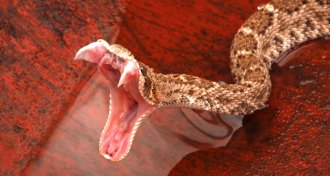 Life
LifeRattlesnakes have reduced their repertoire of venoms
The most recent common ancestor of today’s rattlesnakes had a huge set of toxin-producing genes. Modern rattlesnake species have independently ditched some of these genes.